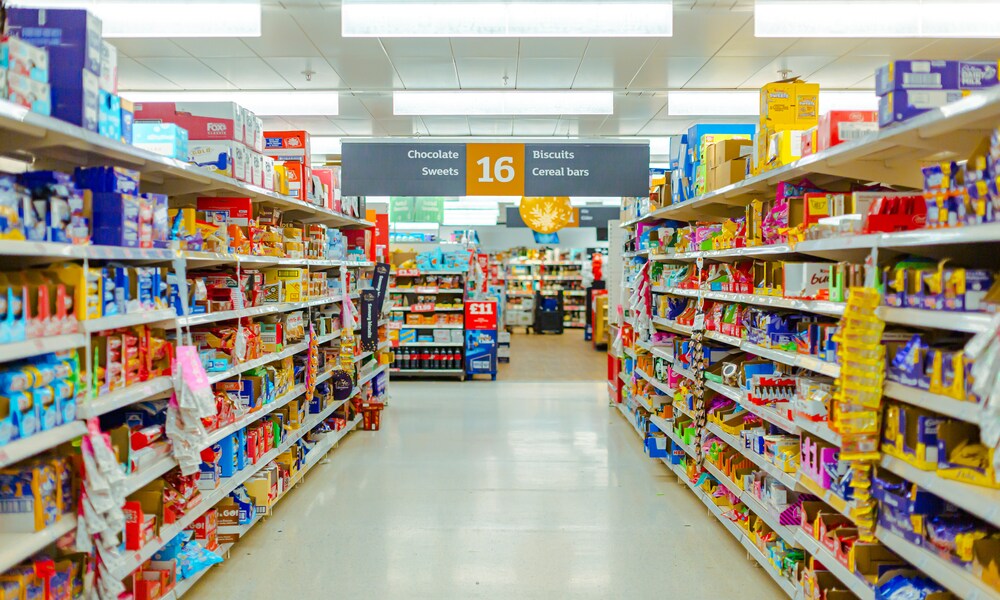In this month’s instalment of The Inside Track, I want to talk about how agriculture as an industry needs to understand more about the consumer.
This was a popular topic of conversation at the recent Oxford Farming Conference. While the usual clarion call is that the consumer needs to understand more about food and where it comes from, I think it’s incumbent upon us within the farming industry to understand consumer motivations and preferences for food.
With 85% of shopping conducted in supermarkets and 60% of the modern diet being ultra-processed, there is a significant disconnect between us and the origin of our food. Despite figures from a recent Food Standards Agency report, ‘The UK Public’s Interests, Needs, and Concerns Around Food’ (2022) indicating that consumers are concerned about issues like the overprocessing of food and its environmental and animal welfare impacts, many reported they did not find it easy to make healthy and sustainable choices.
That’s why I think as an industry, we need to do more to help people reconnect with where their food comes from and enable them to make better informed choices. Central to this is collaboration. Agriculture needs to work more closely with the rest of the food supply chain, particularly the food service industry who are on the front line. Though there are some food outlets that convey pride in their food’s origin and production, others lack any relevant messaging about how the food is produced or how healthy it is.
There was a session at the Farming Conference looking at the food experiences of some inner-city areas by those living in these communities, who often referred to these areas as “food deserts”. The only thing people had access to in their local food outlet was chicken nuggets and chips. There was no raw food or meal ingredients. It raises the question that if that shop did suddenly supply fresh produce, would the people know what to do with it, or would they decide they weren’t going to buy it for whatever reason – time, knowledge, value perception etc.?
Reconnecting people with food
I think that some elements of the food system (certainly not all) find it more profitable to produce ultra-processed food than they do from producing healthier options. This is often associated with economies of scale driven by convenience/shelf life and taps into humanities predisposition for high sugar, fat, salt content foods.
This is where elements of the food system are not aligned with healthy and sustainable outcomes. As a society, rather than focusing on healthy lifestyles or creating access to healthy food and providing education around it, we’ve created medical interventions – weight loss injections, and a myriad of treatments for people suffering from poor lifestyle choices. Are we seeing a shift of profits from the food industry to the pharmaceutical industry and will this change attitudes? I suspect not on its own, much more change is required across the food system, but it may be a catalyst.
Our society appears to be all about the quick fix. Pre-and post-war, there are very few images of obese people. People had a much simpler diet made up of single ingredients driven by what was in season, they generally had a more active lifestyle, and they didn’t eat so much, as food was often scarce and expensive. Now we’ve moved to a time where we are surrounded by food, made ever more convenient and ever more calorific. The desirability of eating is, from a human perspective, a win-win. But from a health perspective, it’s caused huge problems for society. Just look at the huge numbers of people signed off work with illnesses caused by inflammation resulting from a poor diet.
How do we reconnect people with an understanding of food, how it works, how it makes you feel, and how it reacts with your body?
The need to collaborate, educate, and instigate change
As an industry, can we reach out more and learn about consumers, why they make the choices they make, and how we can integrate with the food supply system to help educate people and instigate change? We don’t have to do it as individuals. For farmers, it’s not just about ‘me and my business’, it’s about being more collaborative in the way that we farm, produce food, and interrelate with society. It may seem a daunting task, but if we are open-minded, willing to play our part, and talk to people to see how things can change in our businesses as well as those in our supply chains, you never know where it will lead.
I saw a great example of this at the Conference. Anthony Murphy, one of the founders of the Beefy Boys burger chain spoke about how it all began for him and his co-founders. They went from back yard barbecues to competing in the World Burger Championships in Las Vegas. Now they are a multiple award-winning burger brand that employs 250 people across four restaurants. The reason they keep winning awards is because they educate people about the food they’re eating. They’re meticulous about what goes into their burgers. They only use grass-fed Hereford beef, and they went to a baker to create the best buns as opposed to filling their menu with ultra-processed options. The company is an excellent example of how well collaborating with farmers and suppliers can work. There should undoubtably be more of that within the food system.
Public procurement has a role
Positive change needs to happen in the public sector too. The public sector spends £5 billion on food across its different estates, but there is no policy around how healthy it should be or even a policy to buy British. Steve Reid did remark at the Conference that the government would honour its pledge that at least 50% of the food bought by the public sector going forward would be produced in the UK. But how long it takes to get there is another matter. Though as a pragmatic optimist, I think the fact that more and more people are talking about the change that needs to happen within our food system has got to be positive. Far better in my view than keeping our heads down and carrying on in the direction that we’ve been going.





